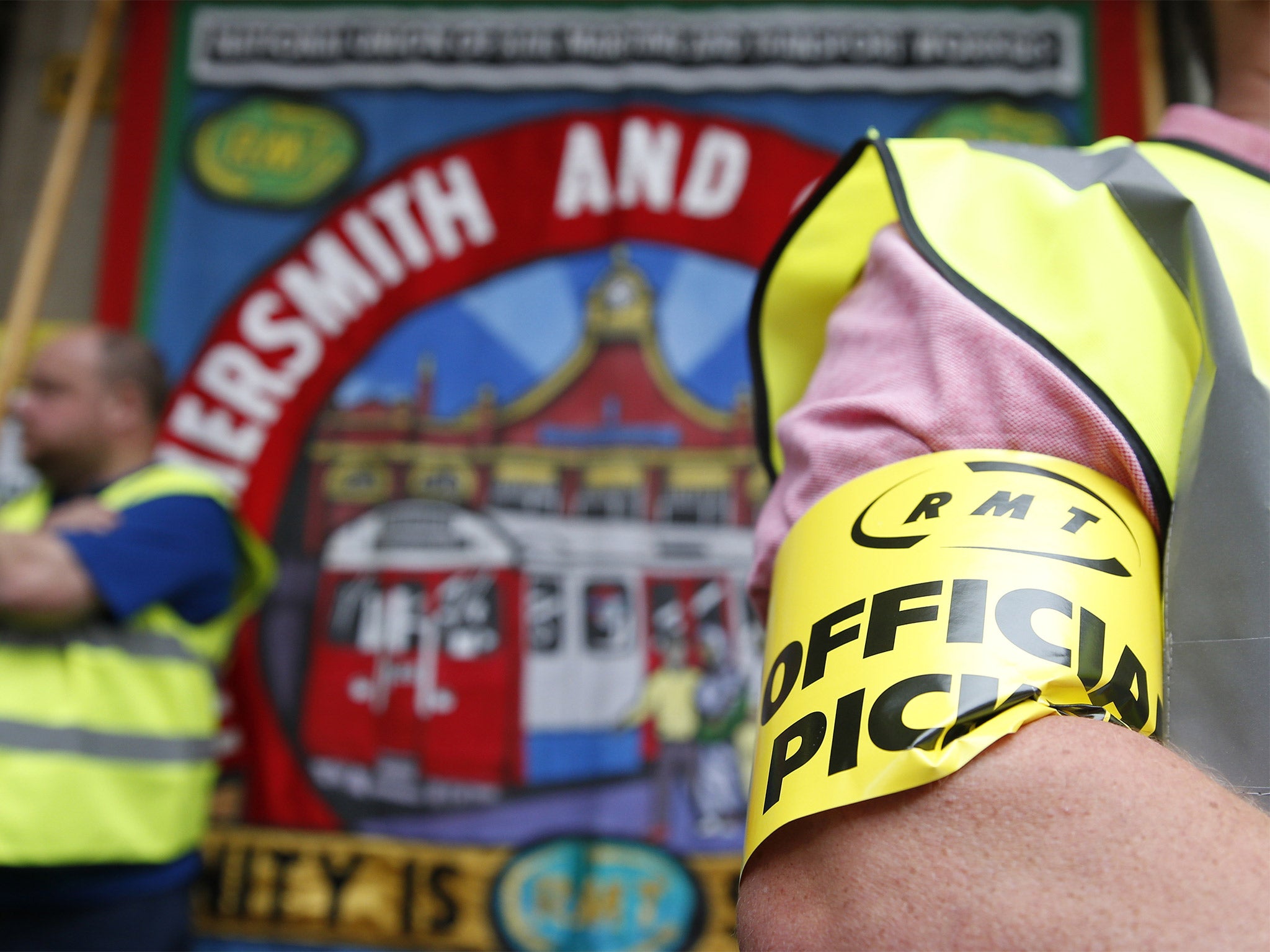The Trade Union Bill is coming – here's what it threatens
As the bill edges closer to becoming law, we cannot forget what it will mean for working people


Your support helps us to tell the story
From reproductive rights to climate change to Big Tech, The Independent is on the ground when the story is developing. Whether it's investigating the financials of Elon Musk's pro-Trump PAC or producing our latest documentary, 'The A Word', which shines a light on the American women fighting for reproductive rights, we know how important it is to parse out the facts from the messaging.
At such a critical moment in US history, we need reporters on the ground. Your donation allows us to keep sending journalists to speak to both sides of the story.
The Independent is trusted by Americans across the entire political spectrum. And unlike many other quality news outlets, we choose not to lock Americans out of our reporting and analysis with paywalls. We believe quality journalism should be available to everyone, paid for by those who can afford it.
Your support makes all the difference.This week I gave evidence to the committee of MPs scrutinising the government’s Trade Union Bill. I told them about three women who found strike action was the only way to persuade their employer to listen.
Natalie is a midwife from the south coast. She's proud of the job she does. But last year, when the Government ignored the independent recommendation to give health workers a 1 per cent pay rise, Natalie and her colleagues went on strike. Like the true professionals they are, they ensured no woman gave birth without support and made sure services were available for emergencies – but otherwise they were on the picket line outside the hospital. After years of pay freezes, they felt that they had no choice.
Then there's Daisy, who works for an art house cinema in south London. The cinema insisted on paying its staff well below the London Living Wage. After months of fruitless negotiations with management, they took the tough decision to go on strike. They felt they had no other option. Sure enough, it brought management back to the negotiating table. Daisy and her colleagues are now all paid a fairer wage – still not quite the London Living Wage, but much closer to it.
And finally there’s Lucy, a fire-fighter. When the fire authority insisted on closing stations across London, she feared for the safety of the community she serves. So she went on strike.
Nobody ever wants to go on strike – after all, strikers don’t get paid, and for many people it takes them away from a job they’re proud to do. But when management won’t talk, won’t negotiate, or won’t compromise, it’s an essential last resort.
So I told MPs about Lucy, Daisy and Natalie, and explained that no-one takes striking lightly. I argued that the government’s proposals – the bill and others measures packaged with it – will threaten the fundamental right to strike.
Take the proposal to allow employers to bus in agency temps to replace striking workers. It’s been prohibited since 1973 for good reason. If agency workers replace an entire workforce overnight, it will lead to poorer services and may even put the public at risk. It is far better for the management to get around the table with unions and negotiate a fair deal. But where is their incentive to negotiate if they can just break a strike by hiring temps?
Or take the proposals to regulate protests and pickets. The Government wants to make local union officers disclose what they will post on Facebook or Twitter two weeks in advance. They are even floating the idea of making all striking workers on a picket line register with the police. Writing for The Independent, Amnesty International, Liberty and the British Institute of Human Rights have called these proposals “a major attack on civil liberties” which undermines the rights of all working people in the UK.
The problems don’t end there; the bill will also interfere with the everyday activities of trade unions. It will wrap red tape around how we collect our members’ subs and how we spend our members’ money. There will be a cap on the amount of time unions can spend on representing members, improving health and safety, promoting workplace training and supporting colleagues facing bullying or discrimination at work. The Government even proposes to let ministers interfere in how your local councils or hospital manage their employee relations – hardly the “devolution revolution” we were promised.
Even the Government’s own red tape watchdog has given the bill a thumbs-down. The Regulatory Policy Committee says the Government is rushing through the legislation with scant evidence, and without properly defining the problem that needs to be solved.
Of course, most strike ballots lead to a settlement without anyone ever walking out. But that’s because there is power on both sides of the bargaining table.
When all is said and done, threatening the right to strike shifts the balance of power in the workplace. It threatens workers’ rights to have a voice at work. And it threatens one of the foundations of our democracy – the right to withdraw your labour.
Join our commenting forum
Join thought-provoking conversations, follow other Independent readers and see their replies
Comments